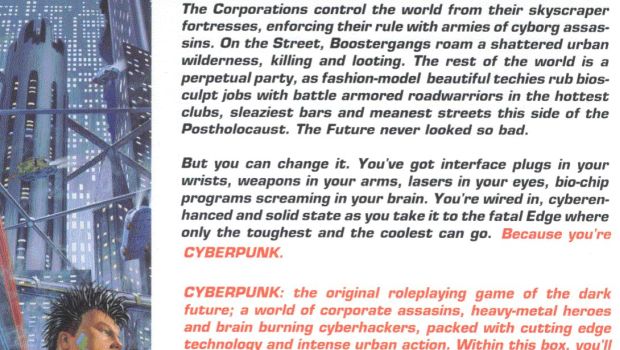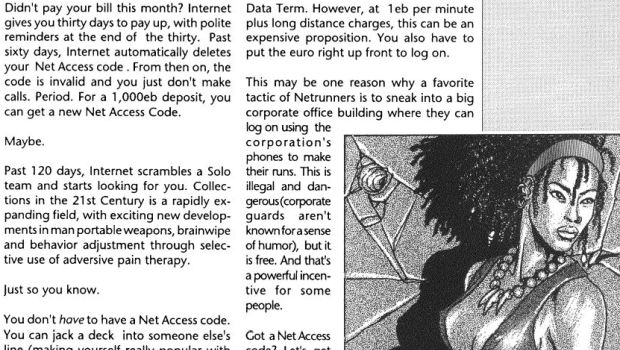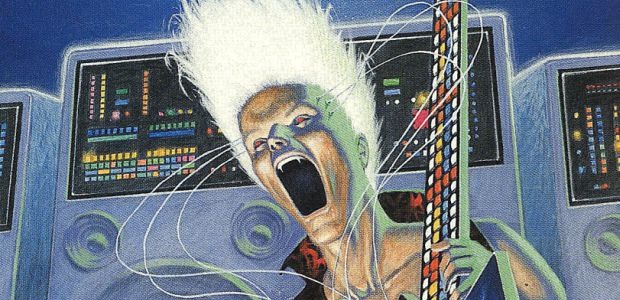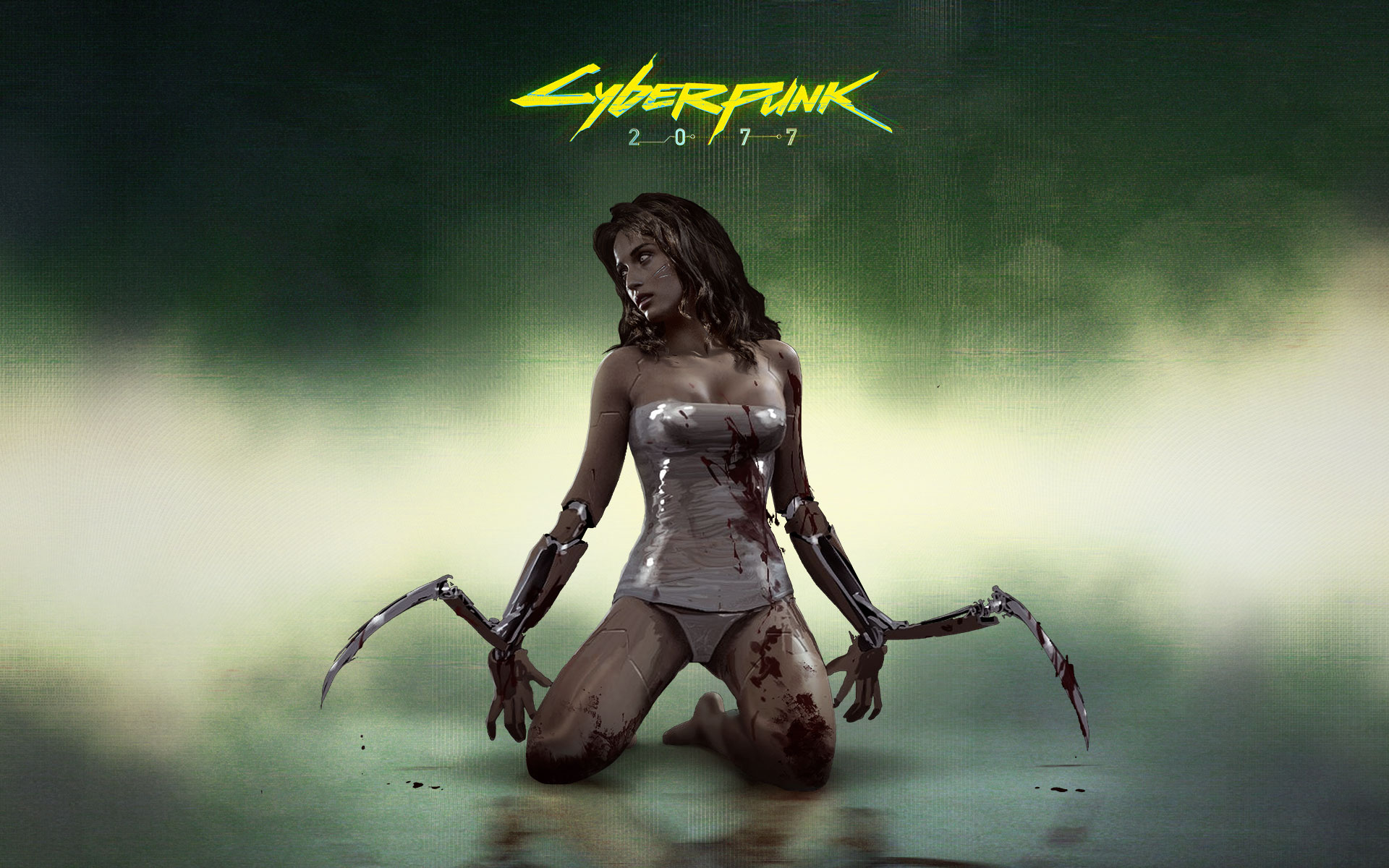
To build his vision of the future, Pondsmith has absorbed knowledge about technology, futurism, politics, social trends, fashion, geology, and just about any other topic you might care to mention. A designer’s library, he says, should be deep and broad.
“We’re just having two new bookcases into the bedroom, which will mean every wall contains books, and that’s on top of an entire room devoted to books downstairs, and the ones stored in the office. It’s paleontology, a hobby of mine, to human history and everything in between. Part of the reading is building knowledge, but it’s about trying to get a sense of the zeitgeist: what is going on, what is visible, what will give us certain outcomes.”
I asked if finding the zeitgeist had become easier now that there’s so much data to dig through, or if all the noise made finding a clear signal harder than it had been in the eighties, before information clogged the air that we breathe.
“What you have to do is go outside your bubbles. The more dataflow you can stand in, the more you can learn. I hit reddit and twitter, and do a lot of lurking. There are only three places where I let people know who I am, mainly so that I can get a reaction from fans and people who are interested in our work. I can learn a lot by going to a store, looking at the magazines people are reading. I can learn a million things by visiting a toy store. These are the ideas the next generation will grow up with.
“The internet is important too, of course. I spend a lot of time trawling for information, checking things and going down rabbit holes. But you expose yourself to a lot of terrible things as well as wonderful things out there. I had a really nice young woman who was my social media person and she almost had a breakdown dealing with it. The biggest advantage you can have out there is to be unflappable. That helps. The most horrible voices are usually the loudest because they have no other place to yell.”
All of that noise, the yelling and the disenfranchisement included, often seems symptomatic of a peculiarly modern mania. Does Cyberpunk have to reflect the times we live in, and the geopolitical changes from one edition to the next?
“Cyberpunk Red has an entire bunch of sections that say ‘2020 is closer than you think’. I talk about ramifications of what we are doing now. This is my son’s reality and future, and unless we start straightening our shyt out, it’s not going to be pretty. There is a strong political undercurrent in Cyberpunk, but the biggest message is simple: if you want a future you have to take it into your own hands and realise that nobody else will build it for you. That may involve political action, hacking, or picking up a gun. But the future doesn’t come out how you want it unless you make that change.”

Another central tenet of Cyberpunk, Pondsmith tells me, is that “even if a cause is doomed, you need to fight for it”. Indeed, the Cyberpunk world is full of people striking against what they see as misuse and abuse of power, whether in the form of ecoterrorism or anti-corp hacks and assaults. The line between freedom fighter, survivor and terrorist is blurred.
“There are some eerie parallels in things I’ve written about terrorist attacks and situations in the real world, but if you follow the trends as you write about the future you’re probably going to end up a place that is sometimes painfully familiar. But Cyberpunk is a parallel future rather than a prediction of our future. Terrorism comes about when you have people who want to fight someone but don’t have the means to fight them except through these acts. These situations aren’t new – they could reflect 19th century India, mid-20th century Europe or 21st century America.”
But whether these futures are parallel or predictive, Pondsmith doesn’t think we’re far from our very own cyberpunk lifestyle.
“The thing of it for me is that it all boils down to people and how they use tech. It boils down to tool-use and that is the extension that makes us kind of meta-creatures. You remember things on a much larger level because you have memory devices. At any minute you can get a story and translate it into five languages, then throw graphics behind it. You have access to these insane tools.
“Part of what’s happening now is that these tools are becoming accessible to more and more people; across history, powerful creative tools have been the promise of the very few, like the printing press and even paper and ink. Benjamin Franklin said “the power of the press belongs to those who own one”. Well, a whole lot of us own things more powerful than the printing press now.”

But how far away is a device transmitting information and providing access to tools from actual body augmentation?
“Body horror creates an interesting cultural sliding point. Once we get over the body horror aspect though, we’ll be happy to have it all built-in as long as, once again, it’s easy to repair or replace. One of the things about the cyberpunk culture is that we’re not going to get man-machines because we want to turn ourselves into robots; not in terms of jumping fifty feet in the air or punching through a wall. It’ll happen because we want more choices, more knowledge and more access.”
So no bionic arms then?
“I didn’t say that, but I certainly wouldn’t be first in line. My kids might though. The idea that I’m going to cut my arm off all the way to the elbow and replace it with metal is…” he shudders. “But the tipping point is already gone. Old people have artificial hips, my mother had surgery to remove cataracts and now her vision is better than it was before the cataracts.
“Eventually the transgressive nature will be reduced. An entire new thing right now is 3d printing to build prostheses for kids that lack limbs. Well, somebody who has a silver-chrome cyberlimb like [Cyberpunk character] Johnny Silverhand might tempt some kid who isn’t missing a limb to have their hand removed just so they can have a better one. Like Johnny’s. At some point, when that process is easy to do, it won’t seem like such a big deal.”
Pondsmith introduces me to Aimee Mullins, through the medium of a TED talk rather than in person. I’ll leave you with that excellent talk, but first a word about a familiar character.
“I think Geralt is a little bit cyberpunk and I hope we can sneak something in 2077 that relates to him without the fans immediately catching on. He does what he needs to do, he doesn’t necessarily get any joy out of it – he just makes sure that what needs to go down does go down. It’s a combination of fatalism and romanticism. That’s cyberpunk.”












